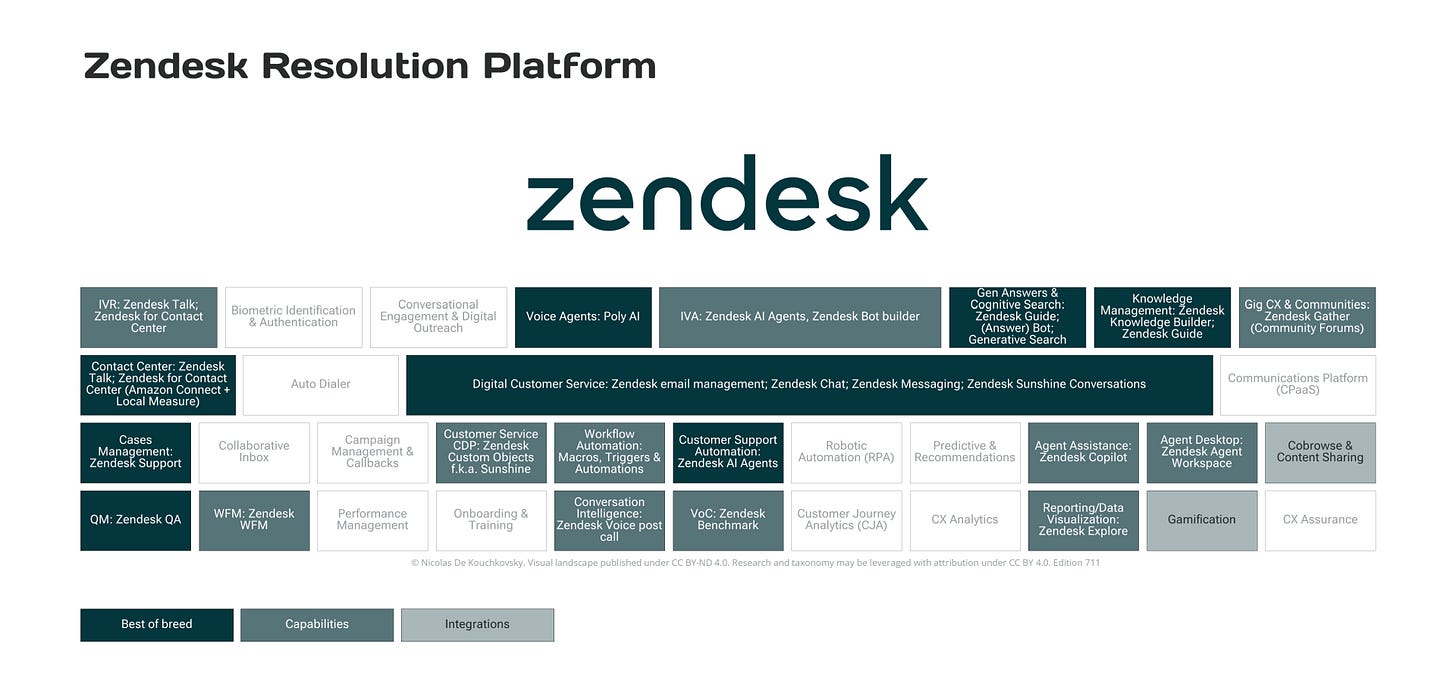Zendesk's Relate user conference last week marked an important milestone for the company. Two years into its second act as a private company, it has sharpened its focus on two key markets: customer experience (CX) and employee service. Let’s dive into the announcements and key takeaways from the event.
Zendesk has historically served employee support more by default than by design—customers adopting its intuitive help desk software for internal use. Now, with the formal introduction of the Zendesk Employee Service Suite, the company is making a deliberate push. With 17,000 companies already using Zendesk for employee-facing operations, this move feels not just logical but overdue. The newly introduced suite brings purpose-built capabilities, most notably a Service Catalog that extends beyond help desks to deliver a seamless employee experience from onboarding to ongoing support.
The highlight of the event was the launch of the Zendesk Resolution Platform, with AI Agents at its core.
Zendesk has made it clear—it wants to be your AI provider, and its newly released agentic platform is definitely worth your consideration. The company shared that it already has 10,000 customers using its AI products.
Customer support automation is one of AI's most promising use cases. Support operations are highly digitized, with vast datasets concentrated in help centers and ticketing systems—capturing both interaction transcripts and resolutions.
With over 13 million resolutions processed daily, Zendesk has transformed its data goldmine into a powerful knowledge graph. Zendesk's agentic platform nicely exposes the chain of thought of its agents, giving you both visibility and control over processes and actions. It leverages Zendesk QA to oversee not only human agents but also automations—an ingredient the company highlights as part of its secret sauce. Its architecture is built for a swarm of highly specialized agents—Zendesk's approach to achieving accuracy at scale.
Zendesk has centered its AI vision on driving resolutions, setting an ambitious target to automate 80% of support inquiries within the next few years. While the "driving outcomes" messaging pervades vendor marketing, Zendesk backs this positioning by aligning both its value and pricing with the key result you can expect—resolution. This is already reflected in its pricing at $1.50 per automated resolution. And as we shift toward a world where resolution is predominantly automated, the company plans to evolve its seat-based pricing model into an outcome-based structure, offering the flexibility to convert pricing between human and automated support.
I commend Zendesk for tackling the challenges of knowledge management—an essential yet notoriously difficult domain. Its new Knowledge Builder introduces GenAI-powered tools to enrich, refine, and repurpose content, taking the tedious out of the job.
Eventually, Zendesk’s Resolution Platform brings together its recent acquisitions, bolstering its contact center capabilities.
While the Local Measure acquisition is still awaiting regulatory approval, the path forward is clear. Zendesk also aims to be your contact center provider for two key reasons. First, as automation takes hold, it sees voice becoming a more strategic escalation channel for complex issues, with research already showing that voice is used in 52% of resolution journeys. Second, as markets converge, Zendesk seeks to prevent CCaaS vendors from encroaching on its territory.
It plans to leverage Local Measure technology and expertise to package Amazon Connect for the mid-market, a segment where its offering particularly excels. Combined with its WFM and QA modules, as well as PolyAI’s Voice Agents, Zendesk will be well-positioned to provide a comprehensive contact center solution.
Relate 2025 represents a significant turning point for Zendesk with the launch of its agentic platform, a key step in realizing its aspiration to become your AI provider. The event also highlights the company's strategic focus on two key market opportunities: employee services and customer service with an expanded scope to include contact centers. By aligning its value proposition and pricing model around resolutions, Zendesk cleverly differentiates itself amid the growing number of vendors positioning themselves as broad CX providers.




